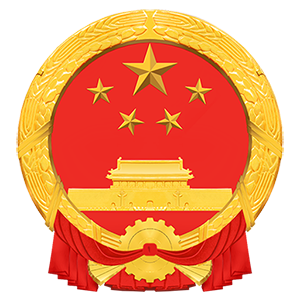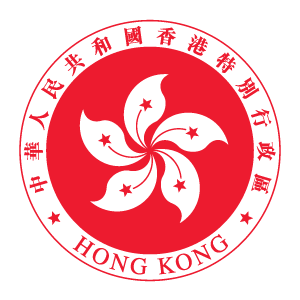

Website
Members
Committees
Bills
LegCo Databases
-
- |
-


ISE05/20-21
| Subject: | economic development, tourism, travel bubble, COVID-19 |

Global easing of travel restrictions
Entering Singapore under Air Travel Pass scheme
Entering Singapore under Safe Travel Pass scheme
Figure 1 - Entering Singapore under Air Travel Pass/Safe Travel Pass scheme

| Note: (1) | A unilateral-ATP/bilateral-STP traveller must upload all data in the TraceTogether app upon request by the Singapore's Ministry of Health, should he or she test positive for COVID-19 while in Singapore or in the 14 days after leaving Singapore. |
| Source: Various government websites. | |
Travelling from Singapore under Fast Lane/Reciprocal Green Lane arrangements
Figure 2 - Travelling from Singapore through Fast Lane and Reciprocal Green Lane arrangements

Guidelines issued by the European Commission and IATA
| (a) | epidemiological situation - restriction on travel should be lifted first with third countries that have a comparable or better epidemiological situation as the average EU member countries in terms of the number of new cases, trend in new infection rate, and the ability to test, trace, contain, treat and report on the pandemic;
|
| (b) | the ability to apply containment measures, such as physical distancing, throughout a journey from origin and destination; and
|
| (c) | reciprocity - whether the third country has lifted travel restrictions toward the EU citizens. |
| (a) | current infection rates relative to population size;
|
| (b) | trend in infection rates (decreasing, stable or increasing) compared with a previous time period; and
|
| (c) | effectiveness of overall public health response to COVID-19 in each country. |
| (a) | there is little justification for implementation of any extraordinary restrictions such as quarantine, self-isolation or testing for travel between two countries with equivalent CTLs16Legend symbol denoting Logically speaking, an arriving passenger would be expected to be no more likely to be infectious than a member of the general population in the destination country. or from a lower CTL to higher CTL country (i.e. Basic Travel Bubble ("BTB")17Legend symbol denoting BTB only requires standard set of public health risk mitigation measures. Specifically, it features no quarantine or self-isolation requirement on arrival; no specific testing requirements on arrival or departure; basic screening on departure or arrival (during the active phase of the pandemic), and contact tracing and health declarations.);
|
| (b) | it is practical to implement additional measures (specifically testing prior to departure) for passengers from a higher CTL country travelling to a lower CTL country (i.e. Limited Travel Bubble ("LTB"));
|
| (c) | countries deemed to be high CTL would inevitably result in the implementation of quarantine or self-isolation measure which would automatically make them ineligible to be considered for travel bubbles;
|
| (d) | the above should be looked as a broad guideline and countries can choose to implement more stringent restrictions. For example, they can establish Extended Travel Bubble ("ETB"), instead of LTB, with a requirement for testing both before departure and upon arrival; and
|
| (e) | a country's CTL may change for the better or worse and the travel bubble agreement should be flexible to allow for the possibility of revising from LTB to ETB or vice versa. Or the countries may mutually decide that the travel bubble is no longer viable if a partner country's CTL changes to high transmission level. |
Concluding remarks
Prepared by Gary NG
Research Office
Information Services Division
Legislative Council Secretariat
3 November 2020
| Hong Kong
| |
| 1. | coronavirus.gov.hk. (2020)
|
| 2. | GovHK. (2020a) Hong Kong and Singapore reach in-principle agreement to establish bilateral Air Travel Bubble.
|
| 3. | GovHK. (2020b) Press Release: LCQ12: "New Normal" of co-existence with virus.
|
| 4. | GovHK. (2020c) Travel bubble talks underway.
|
| 5. | partnernet.hktb.com. (2020)
|
| 6. | 政府新聞處:《行政長官於行政會議前會見傳媒開場發言及答問內容》,2020年10月27日。
|
| Singapore
| |
| 7. | Ministry of Foreign Affairs, Singapore. (2020) Joint Press Statement by H.E. Retno L.P. Marsudi Minister for Foreign Affairs of the Republic of Indonesia and H.E. Dr Vivian Balakrishnan Minister for Foreign Affairs of the Republic of Singapore on the Reciprocal Green Lane/Travel Corridor Arrangement for Essential Business and Official Travel Between Indonesia and Singapore.
|
| 8. | Ministry of Health. (2020)
|
| 9. | Safe Travel. (2020)
|
| 10. | Singapore Tourism Board. (2020)
|
| 11. | The Business Times. (2020) Relaxed travel measures aimed at reviving business, aviation sector: Ong Ye Kung.
|
| Others
| |
| 12. | European Centre for Disease Protection and Control. (2020) COVID-19 country overviews.
|
| 13. | European Commission. (2020a) Coronavirus: Commission recommends partial and gradual lifting of travel restrictions to the EU after 30 June, based on common coordinated approach.
|
| 14. | European Commission. (2020b) Communication from the Commission COVID-19. Paper No. C(2020) 3250 final.
|
| 15. | European Commission. (2020c) Communication from the Commission. Paper No. C(2020) 3139 final.
|
| 16. | European Commission. (2020d) Communication from the Commission to the European Parliament, the European Council and the Council. Paper No. COM(2020) 399 final.
|
| 17. | European Commission. (2020e) Re-open EU: Commission launches a website to safely resume travelling and tourism in the EU.
|
| 18. | European Commission. (2020f) Temporary Reintroduction of Border Control.
|
| 19. | International Air Transport Association. (2020a) A COVID risk assessment framework to support recovery of air travel.
|
| 20. | International Air Transport Association. (2020b) Restarting International Aviation through 'Travel Bubbles'.
|
| 21. | International Air Transport Association. (2020c) Travel Bubbles - An information paper.
|
| 22. | International Air Transport Association. (2020d) Travel Bubbles, Risk Assessment Framework and Testing.
|
| 23. | Ministry of Foreign Affairs, Republic of Korea (2020). Fast Track Procedure available for applicable Koreans Entering China for business purpose.
|
| 24. | Re-open EU. (2020)
|
| 25. | United States Food and Drug Administration. (2020) Coronavirus Testing Basics.
|
| 26. | World Tourism Organization. (2020a) More than 50% of Global Destinations are Easing Travel Restrictions - but Caution Remains.
|
| 27. | World Tourism Organization. (2020b) UNWTO World Tourism Barometer May 2020: Special focus on the Impact of COVID-19.
|
| 28. | World Tourism Organization. (2020c) UNWTO Tourism Data Dashboard.
|